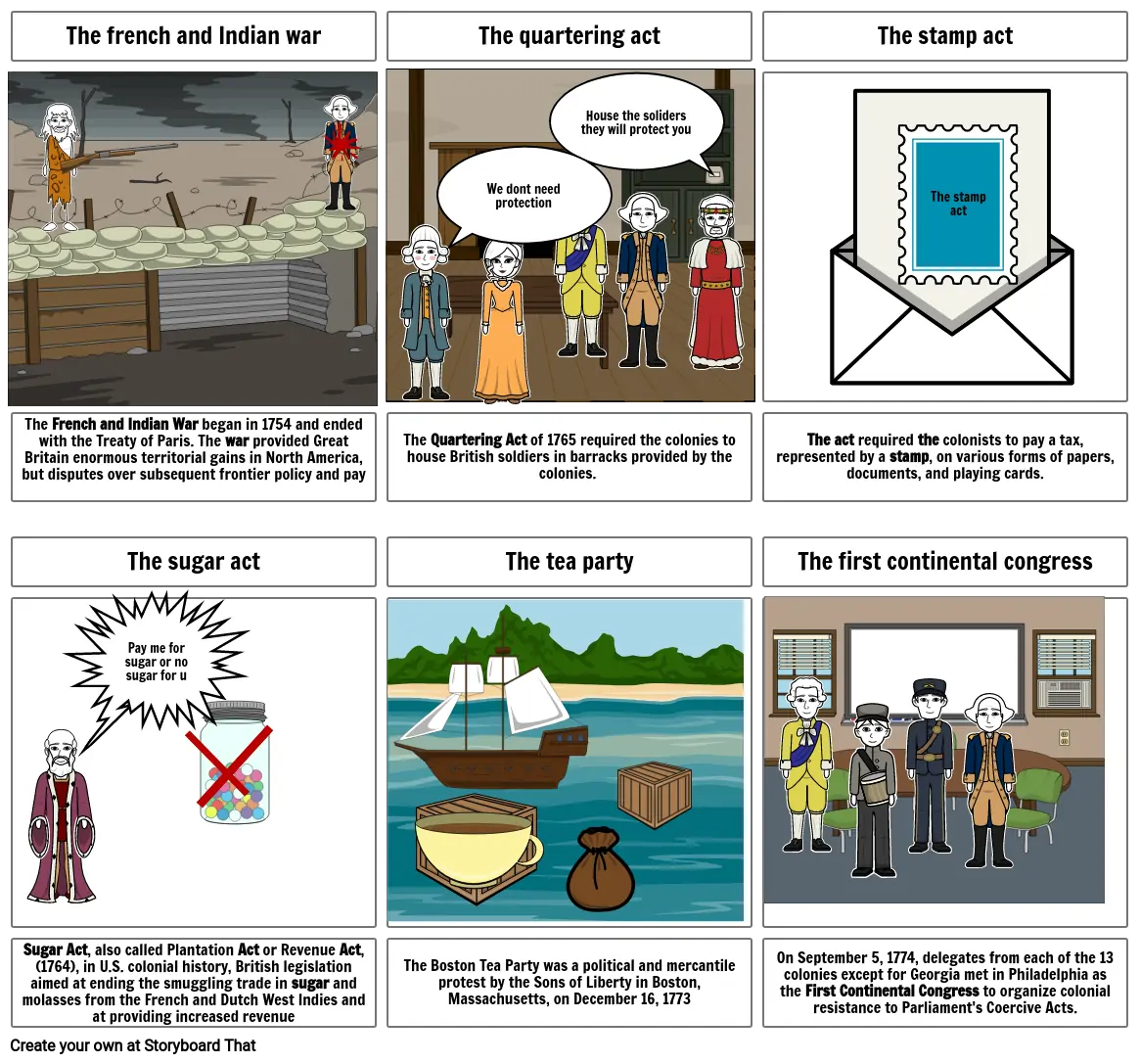History story bored

Storyboard Text
- The french and Indian war
- The quartering act
- We dont need protection
- House the soliders they will protect you
- The stamp act
- The stamp act
- The French and Indian War began in 1754 and ended with the Treaty of Paris. The war provided Great Britain enormous territorial gains in North America, but disputes over subsequent frontier policy and pay
- The sugar act
- Pay me for sugar or no sugar for u
- The Quartering Act of 1765 required the colonies to house British soldiers in barracks provided by the colonies.
- The tea party
- The act required the colonists to pay a tax, represented by a stamp, on various forms of papers, documents, and playing cards.
- The first continental congress
- Sugar Act, also called Plantation Act or Revenue Act, (1764), in U.S. colonial history, British legislation aimed at ending the smuggling trade in sugar and molasses from the French and Dutch West Indies and at providing increased revenue
- The Boston Tea Party was a political and mercantile protest by the Sons of Liberty in Boston, Massachusetts, on December 16, 1773
- On September 5, 1774, delegates from each of the 13 colonies except for Georgia met in Philadelphia as the First Continental Congress to organize colonial resistance to Parliament's Coercive Acts.
Over 30 Million Storyboards Created
No Downloads, No Credit Card, and No Login Needed to Try!
